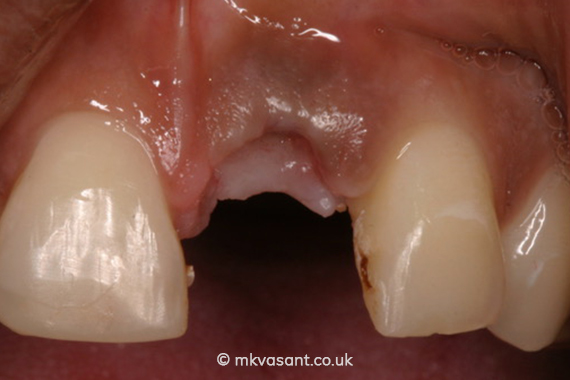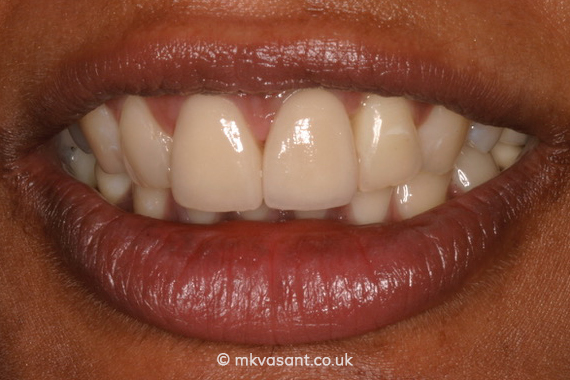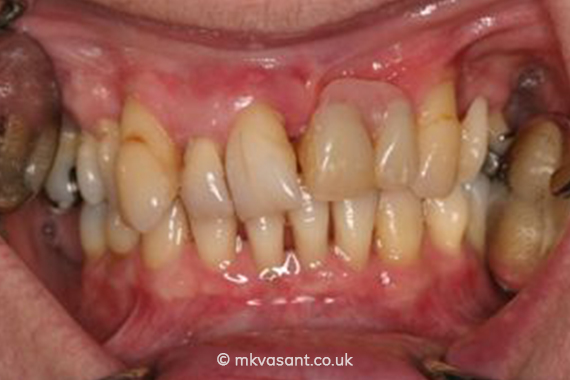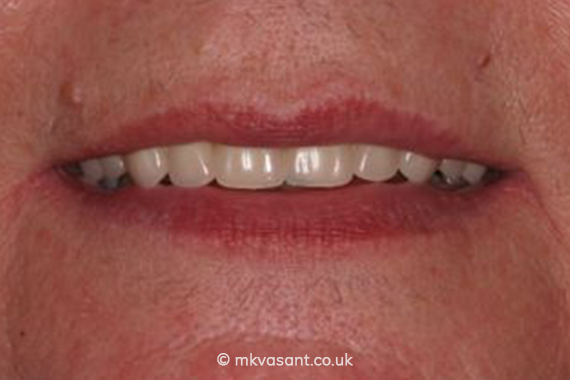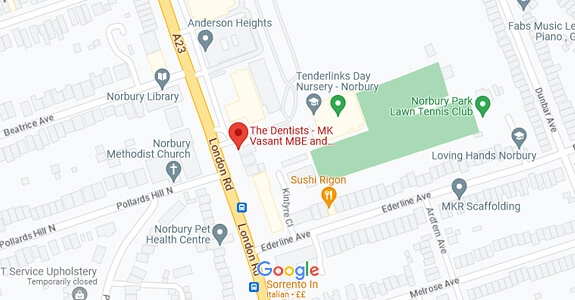Have lost all or some of your natural teeth? Bridges, dentures and flexible dentures are not the only solution, thanks to advances in modern dentistry. Dental implants are small metal screws that are placed in the jaw so that crowns, bridges and dentures can be fixed onto them.
Implant dentistry offers a clinically proven and safe solution to getting back a great smile and being able to bite and chew with confidence. When you lose your natural teeth, your jaw bone and surrounding tissues start to resorb or disappear over time. When implants are placed in the jaw, it stimulates the remaining bone to grow and mesh around the metal, along with tiny blood vessels. More importantly, implants help restore function so you can eat, chew and bite without your dentures falling out or having to stick to a soft food diet for the rest of your life.
- Retained bone structure prevents the face from acquiring a 'sunken' look.
- Implants help restore function so you can eat, chew and bite as usual.
- Implants are a natural-looking way to replace missing teeth.
- You can live free of worry and concern about your teeth.
- When implants are placed in the jaw, it stimulates the remaining bone to grow and mesh around the metal, along with tiny blood vessels, preventing bone loss.
“ I have been going to this wonderful dental surgery for the past ten years. They were recommended to me by my local dentist, as an excellent centre for implant surgery, and I can wholehearted recommend them. The procedure was carried out by Dr. Vasant with such precision and expertise, and all maintenance has been dealt with to the same high standard. The practice is welcoming and friendly, the reception area is large and comfortable, and there is easy free parking in the local roads. ”
As seen on Google Reviews
Dental implants are artificial tooth roots that are surgically placed into the jawbone. They serve as a foundation for replacement teeth, such as crowns or bridges.
The dental implant procedure typically involves several steps. First, the dentist will numb the area and make a small incision in the gum to access the jawbone. Then, a small hole is drilled into the bone and the implant is placed. Over the next few months, the implant will fuse with the bone in a process called osseointegration. Once the implant is secure, a connector called an abutment is placed on top of the implant. Finally, a replacement tooth is attached to the abutment.
The dental implant procedure is typically performed under local anaesthesia, so you should not feel any pain during the procedure. However, you may experience some discomfort and swelling after the procedure. The dentist will typically prescribe pain medication to help manage any discomfort.
Dental implants are designed to be a long-term solution for missing teeth. With proper care and maintenance, they can last for many years, and in some cases, a lifetime. However, the lifespan of dental implants can vary depending on factors such as the patient's oral hygiene habits, the quality of the bone tissue, and other health factors.
Caring for dental implants is similar to caring for natural teeth. You should brush and floss regularly, and visit your dentist for regular checkups and cleanings. Additionally, you may need to use special tools, such as interdental brushes or water flossers, to clean around the implant.
As with any surgical procedure, there are some risks associated with dental implants. These can include infection, nerve damage, or implant failure. However, these risks are relatively rare, and most patients experience successful outcomes with few complications.
The cost of dental implants can vary depending on the number of implants needed, the location of the implants, and other factors. For an accurate price range, book a consultation with our dental team.
While dental implants are a safe and effective solution for many people, they may not be right for everyone. Factors such as the quality of the bone tissue, oral health, and overall health can impact the success of the procedure. When you book a consultation with us, our dentist will examine your particular situation and help determine if dental implants are a good option for you.
If you are interested in dental implants, the first step is to schedule a consultation with us. During the consultation, we will evaluate your oral health and determine if you are a good candidate for the procedure. We can also provide you with more information about the procedure, including the cost and any financing options that may be available.




